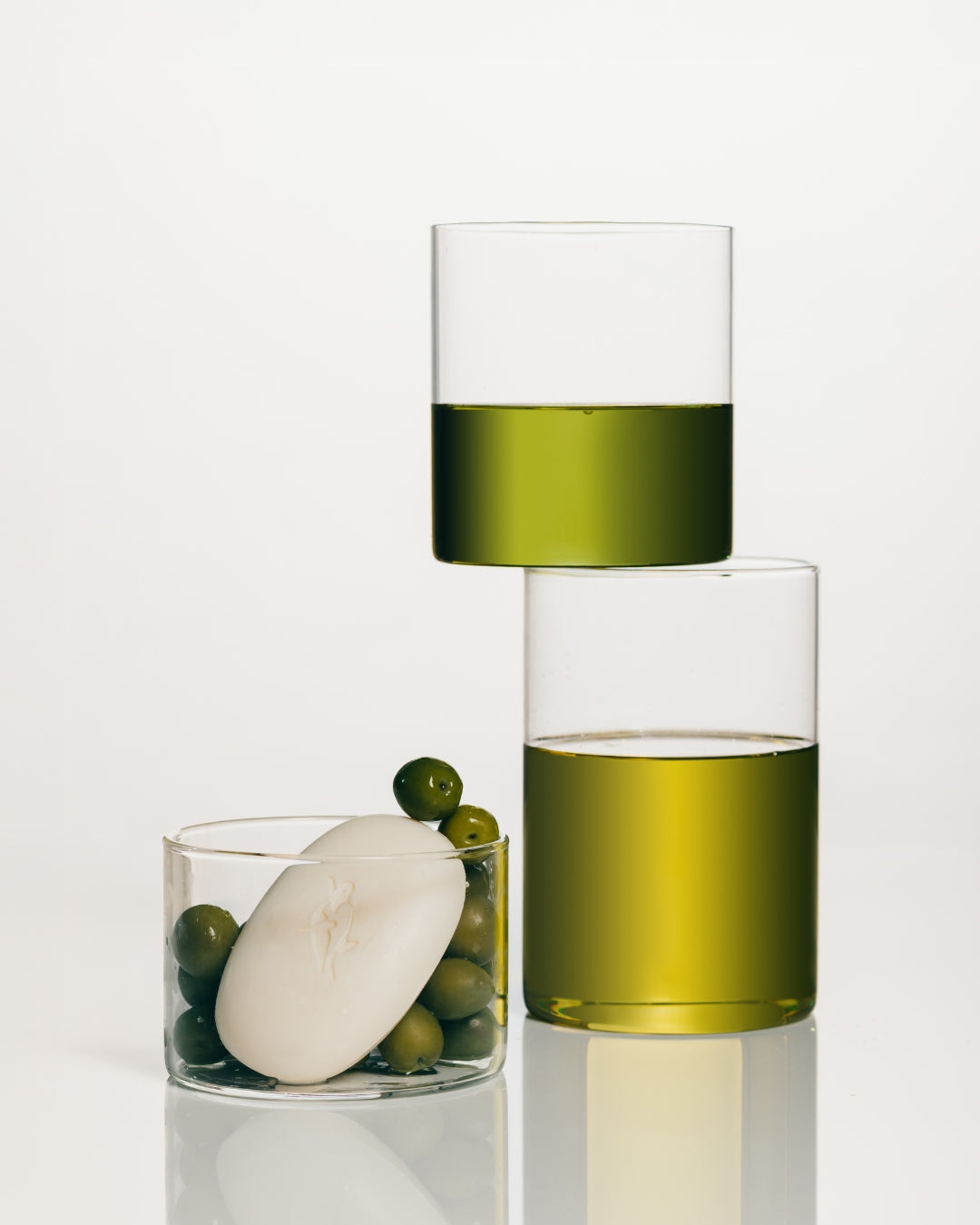When it comes to soap, what’s really going down the drain? Beyond bubbles and lather, every bar has an impact, but some are gentler on the planet than others. Today, we're diving into the (sometimes dirty) details of natural vs. commercial soap in an eco-friendly showdown.
What’s lurking in your lather?
Commercial Soap: Commercial soap is like that friend who always looks way too perfect. It’s filled with synthetic ingredients—like parabens, sulphates, and mystery fragrances. These added chemicals make the soap foam and last forever, but they’re often derived from petroleum, a non-renewable resource that’s rough on the planet. Plus, these synthetic fragrances and additives often stick around after washing, heading straight into our waterways, where they can mess with aquatic ecosystems.
Natural Soap: Natural soaps avoid plastic microbeads. Instead, they’re made from ingredients you can actually pronounce: olive oil, coconut oil, shea butter, and essential oils. These plant-based ingredients are kind to your skin
and the planet. They break down easily, keeping oceans and rivers safe from weird chemical build-ups. Plus, no fake fragrances here—just pure essential oils for a fresh, non-toxic scent.
Is your soap stealing your (and the planet’s) energy?
Commercial Soap: Making commercial soap is a big, factory-scale production that’s all about efficiency, but not necessarily energy conservation. These soaps require high-energy processes and a lot of synthetic ingredients to get that uniform, shiny look. Don’t even get us started on plastic packaging—those brightly-coloured bottles and wrappers aren’t winning any eco-points.
Natural Soap: Natural soap production is more like a cottage industry—think small batches, artisanal care, and minimal energy use. Many natural soaps are cold-processed, meaning they’re made with oils and lye at low temperatures without heavy machinery. And since natural brands are usually smaller, their packaging tends to be eco-friendly, often using recycled or biodegradable materials.
How they break down (or don’t).
Commercial Soap: Ever notice those little beads in some soaps and body washes? They might look cute, but they’re actually microplastics! These tiny particles don’t break down and instead end up in oceans, where they pose serious risks to marine life. Synthetic chemicals in commercial soap can also disrupt the delicate balance in water ecosystems, harming aquatic plants and animals in the process.
Natural Soap: Natural soaps skip the microplastics and synthetic chemicals, sticking to biodegradable ingredients that safely dissolve in nature. When you use natural soap, the lather breaks down easily, so nothing nasty lingers in waterways. If you’re looking for a scrub, natural exfoliants like oatmeal or sea salt do the trick without harming the environment.
Does going green mean going broke?
Commercial Soap: Commercial soap can be a bargain buy, available just about anywhere and in bulk. But let’s be real—those cheap prices often mean cutting corners when it comes to the planet. It’s convenient, sure, but the hidden environmental costs can be hefty.
Natural Soap: Natural soap may be a bit pricier, but you’re investing in quality ingredients and a sustainable product. Many natural soap makers use ethical sourcing and fair trade practices, and even support small businesses. Plus, a good bar of natural soap can last surprisingly long, stretching your dollar further than you might expect.
Convinced to make the soap switch? So were we. That’s why we created Elliqua Cleansing Body Bars - free from SLS, parabens and pesky microplastics. For people who love their skin enough to read a blog on the hidden dangers of regular soaps. Naturally derived, vegan and cruelty free, there’s no surprise Elliqua’s Nature’s pick.




